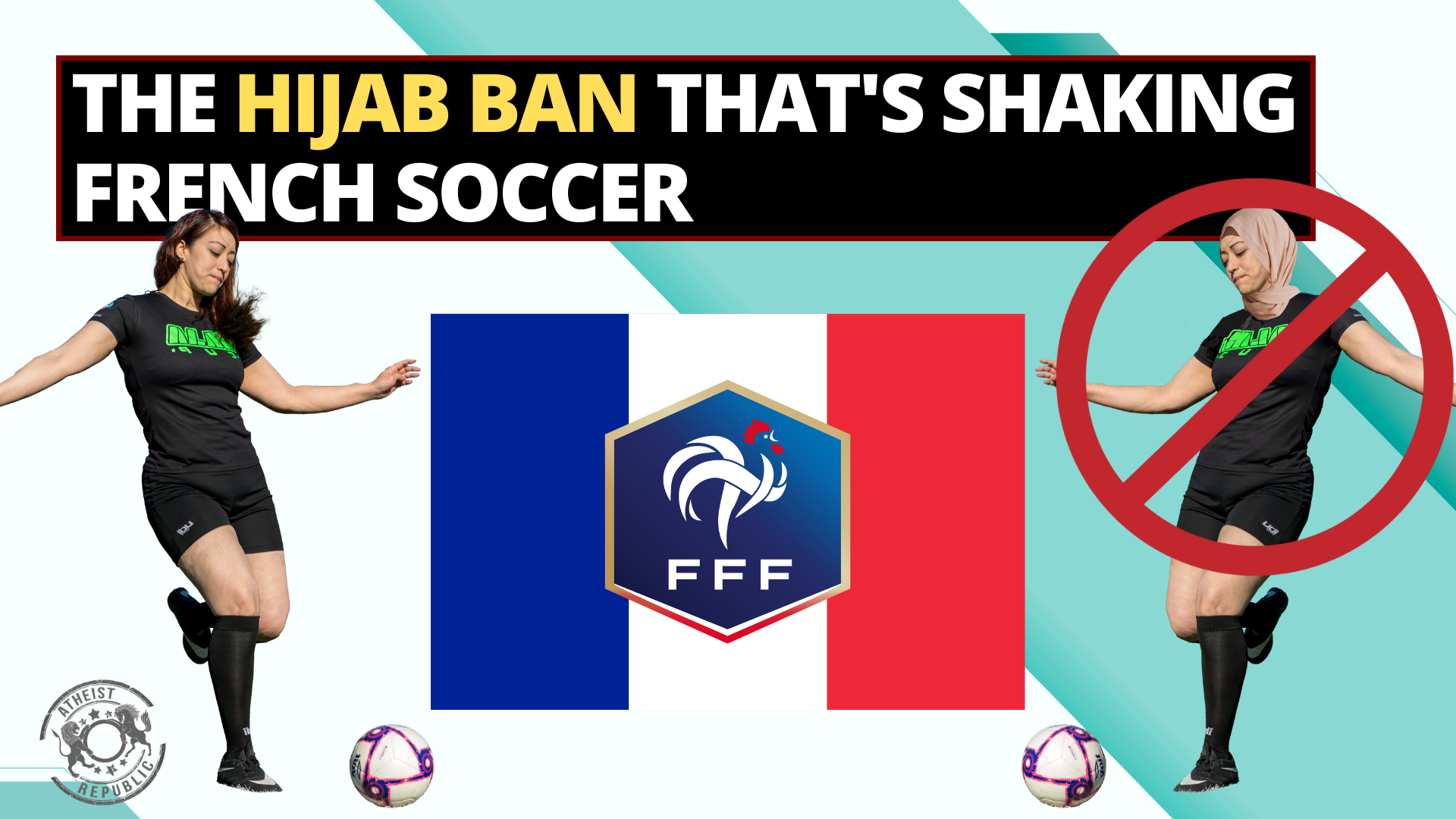
France's highest administrative court ruled on June 29th that the country’s soccer federation has the right to ban players from wearing headscarves during matches, even if the action means limiting their freedom of expression.
France’s highest administrative jurisdiction says the country's soccer federation is entitled to ban headscarves in matches. https://t.co/YwoqABk0DL
— AP Sports (@AP_Sports) June 29, 2023
The Council of State made this decision after a group of soccer players that wear religious headscarves, called “Les Hijabeuses” in French, referring to the hijab or religious headscarf in Islam, launched a campaign against the French Football Federation (FFF) and took legal action against their ban.
The court said that sports federations in France “may impose on their players an obligation to wear neutral clothing during sporting competitions and events, in order to guarantee the smooth running of matches and prevent clashes or confrontation. It considers that the ban imposed by the FFF is appropriate and proportionate.”
The ruling sparked a new debate on the principle of laïcité in France, which is upheld by many French laws, such as Article 1 of the French Constitution and the 1905 French law on the Separation of the Churches and State. This principle is commonly interpreted as discouraging the participation of religion in government affairs and vice versa.
Sport is sport, not propaganda
— JMPRM (@JMPRMfb) June 29, 2023
This principle was not only applied in sports but also in applying for French citizenship, when an Algerian woman was denied naturalization in 2018 after refusing to shake the hand of a senior French official, using her "religious beliefs" as justification.
The French Football Federation currently prohibits players from wearing headscarves and other religious symbols during official matches and in competitions it organizes. This ban does not follow recommendations from the global soccer governing body FIFA, which allows players to wear headscarves during international matches.
In response to the ruling, the French Football Federation said it allowed them to “reaffirm the republican and civic values that underpin soccer and its total commitment to combating all forms of discrimination and promoting gender equality.”
Francs adopts a “freedom from religion” ideology which I support.
— Mimie NYC (@mimie701) June 29, 2023
The ruling was unusual because the court did not follow the recommendations given by its public rapporteur, who recommended that Article 1 of the federation’s rules, which prohibits “the wearing of any sign or dress ostensibly manifesting a religious affiliation” in matches and competitions that it organized, should be annulled.
The rapporteur argued that religious symbols were already present in soccer, using the example of players making the Sign of the Cross before entering the field. Whether these rules will be applied during the Paris Olympics in 2024 remains to be determined.
The court also said that sports federations are free to determine the rules for participating in their events, including rules on clothing and equipment.
Funny how @USCIRF will never call out European countries or @StateDept will ever list a European country as one of concern with regards to religious freedoms.
— SamandarPar (@pakindc) July 12, 2023
“The rules of participation laid down by these federations may limit (the players’) freedom of expression of their opinions and convictions in order to guarantee the proper functioning of the public service,” the court recalled.
French interior minister Gerard Darmanin also said on the radio that he opposed soccer players wearing headscarves and other religious symbols during matches.
“You don’t wear religious clothes when you play sports,” Darmanin said. “When you play soccer, you don’t need to know the religion of the person in front of you.”
No, thats France dress code. Just like people can't wear bikini in muslim countries. Hijab us not allowed in France.
— Starshi (@IpadKevin135823) July 11, 2023
Right-wing senators proposed in 2022 to amend a sports law to extend the ban on religious headscarves to all sports competitions, arguing that neutrality is necessary for sports. This amendment was rejected in the lower house of the French Parliament.
